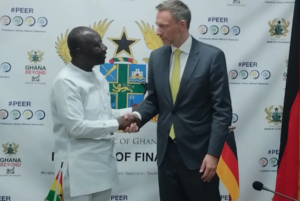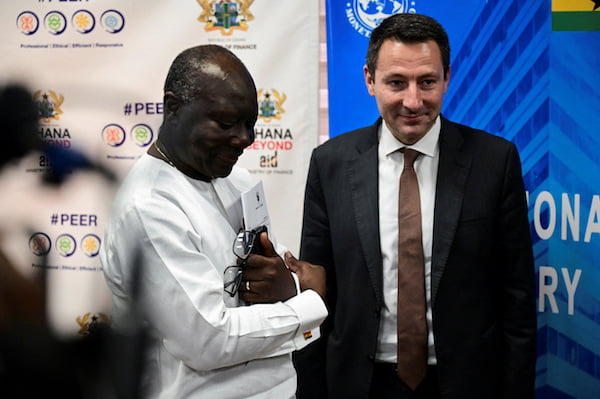Ghana’s official creditors are scheduled to convene on Monday, January 8, to deliberate on the restructuring of approximately $5.4 billion in loans, as reported by Reuters.
This meeting holds pivotal significance in securing the subsequent funding tranche from the International Monetary Fund (IMF), according to credible sources.
At the heart of this restructuring effort is the Official Creditor Committee (OCC), jointly chaired by China and France, key bilateral lenders holding around 25% of Ghana’s $20 billion external debt earmarked for restructuring. The imminent meeting aims to hammer out an agreement on a “cut-off date,” a decisive point beyond which new loans from bilateral creditors will no longer undergo restructuring.

Finance Minister meets with foreign partners
The contentious issue of the cut-off date looms large in Ghana’s debt restructuring saga. Some creditors advocate for December 31, 2022, pointing to Ghana’s default earlier that month. Others support March 24, 2020, the date when the Group of 20 introduced the debt service suspension initiative (DSSI) during the COVID crisis—a program Ghana did not partake in.
Preceding the OCC meeting, the Paris Club, a consortium of major creditor nations (excluding China), will assemble on Friday. A proposed cut-off date of December 2022 has been put forth by the Paris Club in a technical note shared with other creditors and multilateral lenders.
As Ghana grapples with the cut-off date dilemma, consensus remains elusive among creditors. However, achieving an agreement on this critical date could signify a broader consensus on debt restructuring.
For Ghana, renowned for its gold, cocoa, and oil production, resolving the cut-off date issue is paramount to obtaining IMF executive board approval for the next $600 million payout from a $3 billion rescue loan. The IMF mandates financing assurances to ensure bilateral creditors align with the IMF program.
Having initiated bilateral debt restructuring talks under the Common Framework a year ago, Ghana is concurrently engaged in negotiations with overseas bondholders to restructure its substantial international debt exceeding $13 billion. Notable bondholders include major global asset managers such as BlackRock, PIMCO, Vontobel, AllianceBernstein, and Neuberger Berman.


